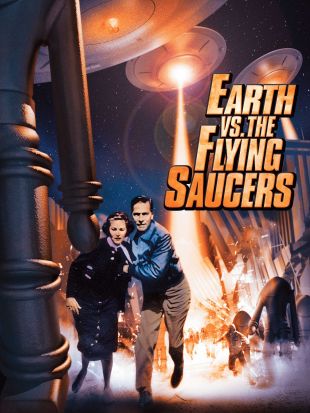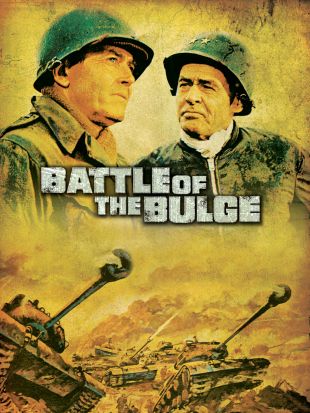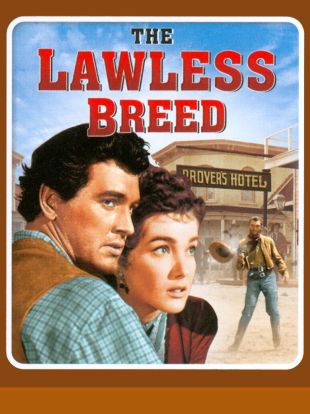Bernard Gordon's 27-year career as a screenwriter included several notable films, despite the blacklisting that prevented him from working openly for more than a decade. Born in New Britain, CT, in 1918, Gordon was raised in New York City and attended City College of New York, where he discovered films and filmmaking as one of his great passions in life. He established a film study group on the campus and made an hour-long movie that earned Gordon and his friend and collaborator, Julian Zimet, honors degrees. In 1940, he made his way to Hollywood and was hired as a reader in the script department at Paramount Pictures. In the course of the next seven years, he moved up to assistant story editor. It was also during this period, shortly after American entry into World War II, that, as an expression of patriotic solidarity with the Soviet Union, Gordon joined the Communist Party. He also became active as a member of the Screen Story Analysts Guild, representing the readers employed by the studios in a successful move for better wages. These separate activities, innocent in and of themselves, came back to haunt Gordon when he was fired at the end of 1947, he believes, because of his union and political activism. It was at this point that he turned to screenwriting, in partnership with his college classmate, Julian Zimet, getting some work out of the B-picture unit at Columbia. Gordon was later hired by Universal producer William Alland as a staff writer -- his stay there was brief, but the first of his two scripts was Flesh and Fury (1951), a fine drama about a deaf-mute boxer, portrayed by Tony Curtis. The second was the script for The Lawless Breed (1952), the first starring film for Rock Hudson, giving the actor a very powerful debut in the spotlight, in the role of the outlaw John Wesley Hardin. The latter project coincided with Gordon's being subpoenaed to appear before the House of Representatives committee investigating alleged communist influence in Hollywood, and his job at Universal was terminated soon after. Despite the cloud hanging over him, Gordon managed to get work at Warner Bros., but after writing a good script for Crime Wave (1954), he was dismissed when he refused to cooperate with the investigators. As it turned out, Gordon never did actually testify, because the round of hearings to which he had been called ran over their allotted time; he was still subject to appearing, but was never recalled, which left him in a peculiar political and employment limbo -- he was known by the industry to be under subpoena, but as one who was never called, he could be neither cleared nor implicated, cited, or absolved. Regardless of how good his work had been -- and The Lawless Breed, Flesh and Fury, and even Crime Wave had attracted notice from some producers -- Gordon couldn't be hired by any A-unit of any major studio. He did find a way of continuing his career, however, through the B-unit at Columbia Pictures; low-budget producer Sam Katzman and his assistant, Charles Schnerr, were able to look the other way on any potential "cloud" hanging over Gordon, and hired him at union scale. There was an irony to Gordon's limited ability to be employed at Columbia -- although he was forced to use the pseudonyms of John T. Williams or Raymond T. Marcus in order to protect himself and the men and the studio employing him, he was getting work, and ended up serving as a vehicle -- in effect, a "front" -- for other, fully blacklisted writers, including Janet and Philip Stevenson, and Bob WIlliams; the Stevensons, who were persona non grata in Hollywood despite an Oscar nomination for Philip Stevenson's script for The Story of G.I. Joe, provided original source material for Gordon's first Columbia project, The Law vs. Billy the Kid, and Williams secretly co-wrote the script, and each received a third share of the fee that Gordon was paid -- and all of the resulting work was credited to "John T. Williams." Gordon later re-wrote sections of the script of Earth vs. the Flying Saucers and later authored The Zombies of Mora Tau and The Man Who Turned to Stone -- the latter film was rather lugubrious and didn't contain a great deal of horror, even by late-'50s standards, but The Zombies of Mora Tau was an effective little chiller within the context of its limited budget and shooting schedule. Those scripts were originally credited to the pseudonym Raymond T. Marcus. Perhaps the strangest twist of Gordon's career took place in 1957, when he was asked to write the screenplay for a film called Hellcats of the Navy, starring Ronald Reagan and Nancy Davis. It was the only movie that Reagan and his wife would ever star in together, and it was a success, one of the very last that Reagan would enjoy in feature films, and the future conservative Republican governor and president likely never knew that it had been the work of a man who had been under investigation for allegedly being a communist. Despite this hit to his "credit" (or Raymond Marcus' credit), and two subsequent feature films, Escape From San Quentin and The Case Against Brooklyn, Gordon was unable to find a permanent berth at any major studio. As with many other blacklistees, he finally found a base for his career in Europe. Eventually moving to Spain, he ended up working for producer/writer Philip Yordan, a successful screenwriter who had turned to producing in the mid-'50s. In the next six years, Gordon authored screenplays for such films as Day of the Triffids, 55 Days at Peking, Cry of Battle, Battle of the Bulge, and Circus World, which were produced either by Yordan directly for his own company or on behalf of Spanish-based film mogul Samuel Bronston -- on none of them, except for 55 Days at Peking (1963), did Gordon get screen credit, owing to the combined effect of the blacklist and Yordan's unusual way of parceling out credit for the scripts of the films that he produced. The latter movie, however, marked the end of Gordon's unofficial exile from the filmmaking community -- the blacklist had already been broken for screenwriters when Dalton Trumbo received credit for the scripts of both Spartacus and Exodus in 1960, with banned directors such as Martin Ritt soon able to work on major releases again, and blacklisted actors like Jeff Corey, Will Geer, and Zero Mostel returning to movies and television by the middle of the 1960s. Gordon spent the early '70s in a new role, as a film producer in Europe, making the movies Bad Man's River (1972), Horror Express (1972), and Pancho Villa (1973) (the latter two written or co-written by Julian Zimet). He later returned to the United States with his wife, Jean (who passed away in 1995), and closed out his movie career as author of the screenplay for Surfacing, an adaptation of the book by Margaret Atwood. During the 1980s and 1990s, he began achieving some belated recognition for his uncredited work, as the Screen Writers Guild began working to restore writing credits that had been denied. When the dust settled, it turned out that Gordon had authored more screenplays as a blacklistee -- nine total -- than anyone else in or out of Hollywood. In 1999, he published Hollywood Exile: Or How I Learned to Love the Blacklist, a knowing, revealing, and at times surprisingly witty memoir of his days in and out of Hollywood. He died on May 11, 2006 after a lengthy battle with cancer.
Bernard Gordon
Share on


